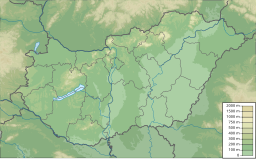
The Great Lakes, also called the Great Lakes of North America, are a series of large interconnected freshwater lakes in the mid-east region of North America that connect to the Atlantic Ocean via the Saint Lawrence River. There are five lakes, which are Superior, Michigan, Huron, Erie, and Ontario and are in general on or near the Canada–United States border. Hydrologically, lakes Michigan and Huron are a single body joined at the Straits of Mackinac. The Great Lakes Waterway enables modern travel and shipping by water among the lakes.

Lake Erie ( "eerie") is the fourth largest lake by surface area of the five Great Lakes in North America and the eleventh-largest globally. It is the southernmost, shallowest, and smallest by volume of the Great Lakes and therefore also has the shortest average water residence time. At its deepest point Lake Erie is 210 feet (64 m) deep.

Lake Michigan is one of the five Great Lakes of North America. It is the second-largest of the Great Lakes by volume and the third-largest by surface area, after Lake Superior and Lake Huron. To the east, its basin is conjoined with that of Lake Huron through the 3+1⁄2 miles wide, 295 feet deep, Straits of Mackinac, giving it the same surface elevation as its easterly counterpart; the two are technically a single lake.

Lake Superior is the largest freshwater lake in the world by surface area and the third-largest by volume, holding 10% of the world's surface fresh water. Located in central North America, it is the northernmost and westernmost of the Great Lakes of North America, straddling the Canada–United States border with the Canadian province of Ontario to the north and east and the U.S. states of Minnesota to the west and Wisconsin and Michigan to the south. It drains into Lake Huron via St. Marys River, then through the lower Great Lakes to the St. Lawrence River and ultimately the Atlantic Ocean.
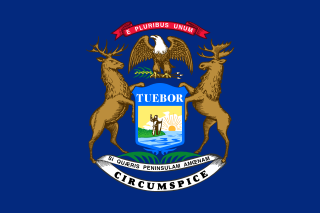
Michigan is a state in the Great Lakes region of the upper Midwestern United States. With a population of nearly 10.12 million and an area of nearly 97,000 sq mi (250,000 km2), Michigan is the 10th-largest state by population, the 11th-largest by area, and the largest by area east of the Mississippi River. Its capital is Lansing, and its largest city is Detroit. Metro Detroit is among the nation's most populous and largest metropolitan economies. Its name derives from a gallicized variant of the original Ojibwe word ᒥᓯᑲᒥ, meaning "large water" or "large lake".
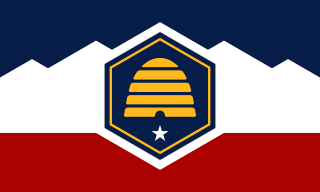
Utah is a landlocked state in the Mountain West subregion of the Western United States. It is bordered to its east by Colorado, to its northeast by Wyoming, to its north by Idaho, to its south by Arizona, and to its west by Nevada. Utah also touches a corner of New Mexico in the southeast. Of the fifty U.S. states, Utah is the 13th-largest by area; with a population over three million, it is the 30th-most-populous and 11th-least-densely populated. Urban development is mostly concentrated in two areas: the Wasatch Front in the north-central part of the state, which is home to roughly two-thirds of the population and includes the capital city, Salt Lake City; and Washington County in the southwest, with more than 180,000 residents. Most of the western half of Utah lies in the Great Basin.

Earvin "Magic" Johnson Jr. is an American former professional basketball player. He is often regarded as the greatest point guard of all-time. Johnson played 13 seasons in the National Basketball Association (NBA). After winning a national championship with Michigan State in 1979, Johnson was selected first overall in the 1979 NBA draft by the Los Angeles Lakers, leading the team to five NBA championships during their Showtime era. Johnson retired abruptly in 1991 after announcing that he had contracted HIV, but returned to play in the 1992 All-Star Game, winning the All-Star MVP Award. After protests from his fellow players, he retired again for four years, but returned in 1996, at age 36, to play 32 games for the Lakers before retiring for the third and final time.
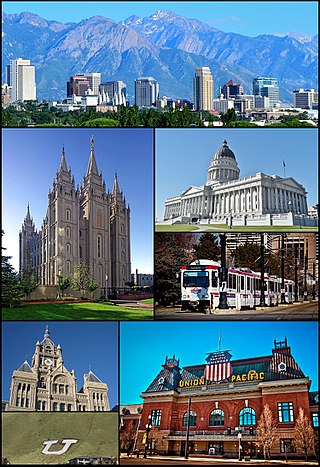
Salt Lake City is the capital and most populous city of Utah, United States. It is the seat of Salt Lake County, the most populous county in Utah. With a population of 200,133 in 2020, the city is the core of the Salt Lake City metropolitan area, which had a population of 1,257,936 at the 2020 census. Salt Lake City is further situated within a larger metropolis known as the Salt Lake City–Ogden–Provo Combined Statistical Area, a corridor of contiguous urban and suburban development stretched along a 120-mile (190 km) segment of the Wasatch Front, comprising a population of 2,746,164, making it the 22nd largest in the nation. It is also the central core of the larger of only two major urban areas located within the Great Basin.

Lake Baikal is a rift lake in Russia. It is situated in southern Siberia, between the federal subjects of Irkutsk Oblast to the northwest and the Republic of Buryatia to the southeast. With 23,615.39 km3 (5,670 cu mi) of water, Lake Baikal is the world's largest freshwater lake by volume, containing 22–23% of the world's fresh surface water, more than all of the North American Great Lakes combined. It is also the world's deepest lake, with a maximum depth of 1,642 metres, and the world's oldest lake, at 25–30 million years. At 31,722 km2 (12,248 sq mi)—slightly larger than Belgium—Lake Baikal is the world's seventh-largest lake by surface area. It is among the world's clearest lakes.

The Los Angeles Lakers are an American professional basketball team based in Los Angeles. The Lakers compete in the National Basketball Association (NBA) as a member of the league's Western Conference Pacific Division. The Lakers play their home games at Crypto.com Arena, an arena shared with the NBA's Los Angeles Clippers, the Los Angeles Sparks of the Women's National Basketball Association, and the Los Angeles Kings of the National Hockey League. The Lakers are one of the most successful teams in the history of the NBA, and have won 17 NBA championships, tied with the Boston Celtics for the most in NBA history.
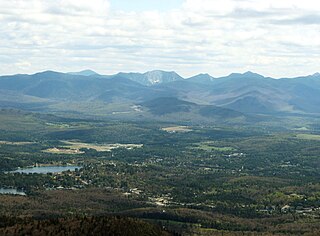
Lake Placid is a village in the Adirondack Mountains in Essex County, New York, United States. As of the 2020 census, the population was 2,303.

Lake Tahoe is a freshwater lake in the Sierra Nevada of the United States. Lying at 6,225 ft (1,897 m), it straddles the state line between California and Nevada, west of Carson City. Lake Tahoe is the largest alpine lake in North America, and at 122,160,280 acre⋅ft (150.7 km3) it trails only the five Great Lakes as the largest by volume in the United States. Its depth is 1,645 ft (501 m), making it the second deepest in the United States after Crater Lake in Oregon.
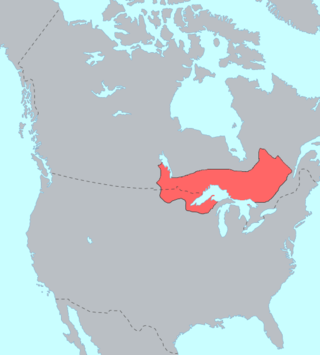
The Ojibwe, Ojibwa, Chippewa, or Saulteaux are an Anishinaabe people in what is currently southern Canada, the northern Midwestern United States, and Northern Plains. They are Indigenous peoples of the Subarctic and Northeastern Woodlands.

LeBron Raymone James Sr. is an American professional basketball player for the Los Angeles Lakers of the National Basketball Association (NBA). Nicknamed "King James", he is widely considered to be one of the greatest players in history and is often compared to Michael Jordan in debates over the greatest basketball player of all time. James has won four NBA championships, four NBA MVP awards, four NBA Finals MVP awards, three All-Star MVP awards, and two Olympic gold medals. James has scored the most points in the playoffs, the most career points, and the second most regular season points, and has the sixth most career assists. He has been selected an NBA All-Star 18 times, to the All-NBA Team a record 18 times, and to the NBA All-Defensive First Team five times. He has competed in 10 NBA Finals, the third most all time, including eight consecutively between 2011 and 2018. In 2021, James was selected to the NBA 75th Anniversary Team, and in 2022 became the first and only player in NBA history to accumulate over 10,000 career points, rebounds, and assists.

Kobe Bean Bryant was an American professional basketball player. A shooting guard, he spent his entire 20-year career with the Los Angeles Lakers in the National Basketball Association (NBA). Widely regarded as one of the greatest basketball players and scorers of all time, Bryant won five NBA championships, was an 18-time All-Star, a 15-time member of the All-NBA Team, a 12-time member of the All-Defensive Team, the 2008 NBA Most Valuable Player (MVP), and a two-time NBA Finals MVP. Bryant also led the NBA in scoring twice, and ranks fourth in league all-time regular season and postseason scoring. He was posthumously voted into the Naismith Memorial Basketball Hall of Fame in 2020 and named to the NBA 75th Anniversary Team in 2021.
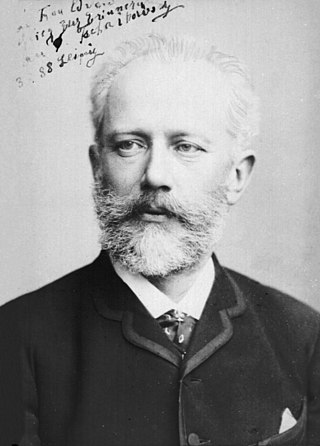
Swan Lake, Op. 20, is a ballet composed by Russian composer Pyotr Ilyich Tchaikovsky in 1875–76. Despite its initial failure, it is now one of the most popular ballets of all time.
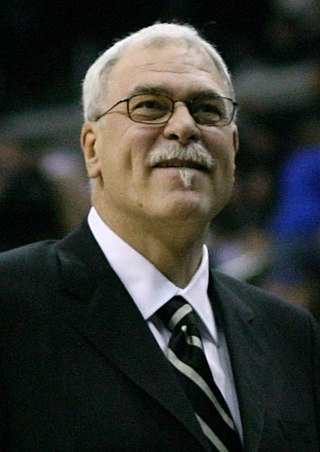
Philip Douglas Jackson is an American former professional basketball player, coach, and executive. A power forward, Jackson played 12 seasons in the NBA, winning NBA championships with the New York Knicks in 1970 and 1973. Jackson was the head coach of the Chicago Bulls from 1989 to 1998, leading them to six NBA championships. He then coached the Los Angeles Lakers from 1999 to 2004 and again from 2005 to 2011; the team won five league titles under his leadership. Jackson's 11 NBA titles as a coach surpassed the previous record of nine set by Red Auerbach.
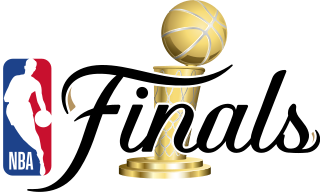
The NBA Finals is the annual championship series of the National Basketball Association (NBA). The Eastern and Western Conference champions play a best-of-seven game series to determine the league champion. The team that wins the series is awarded the Larry O'Brien Championship Trophy, which replaced the original Walter A. Brown Trophy in 1977, though under the same name.
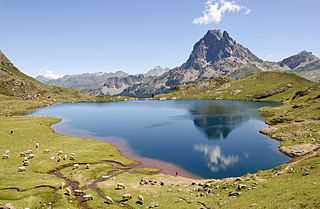
A lake is an area filled with water, localized in a basin, surrounded by land, and distinct from any river or other outlet that serves to feed or drain the lake. Lakes lie on land and are not part of the ocean, although, like the much larger oceans, they do form part of the Earth's water cycle. Lakes are distinct from lagoons, which are generally coastal parts of the ocean. Lakes are typically larger and deeper than ponds, which also lie on land, though there are no official or scientific definitions. Lakes can be contrasted with rivers or streams, which usually flow in a channel on land. Most lakes are fed and drained by rivers and streams.

